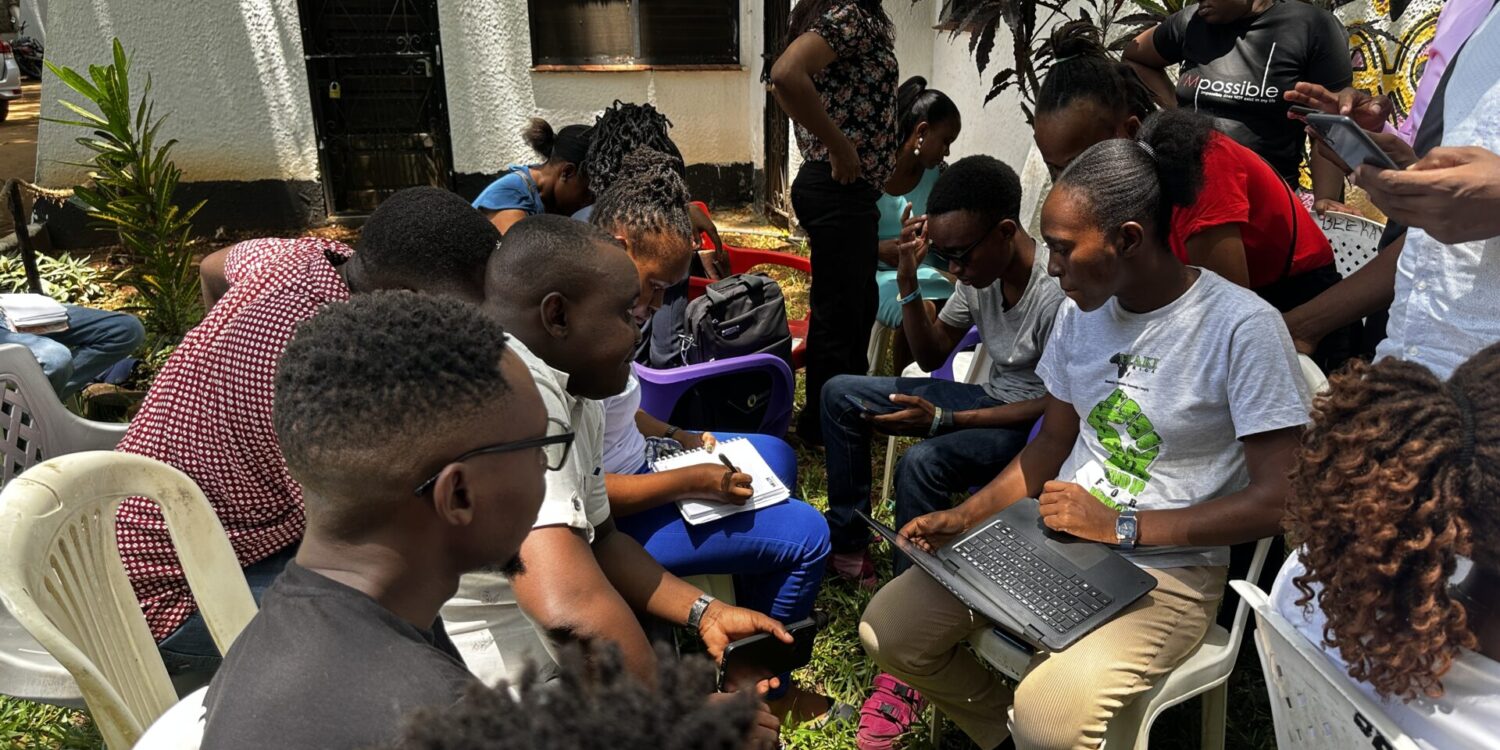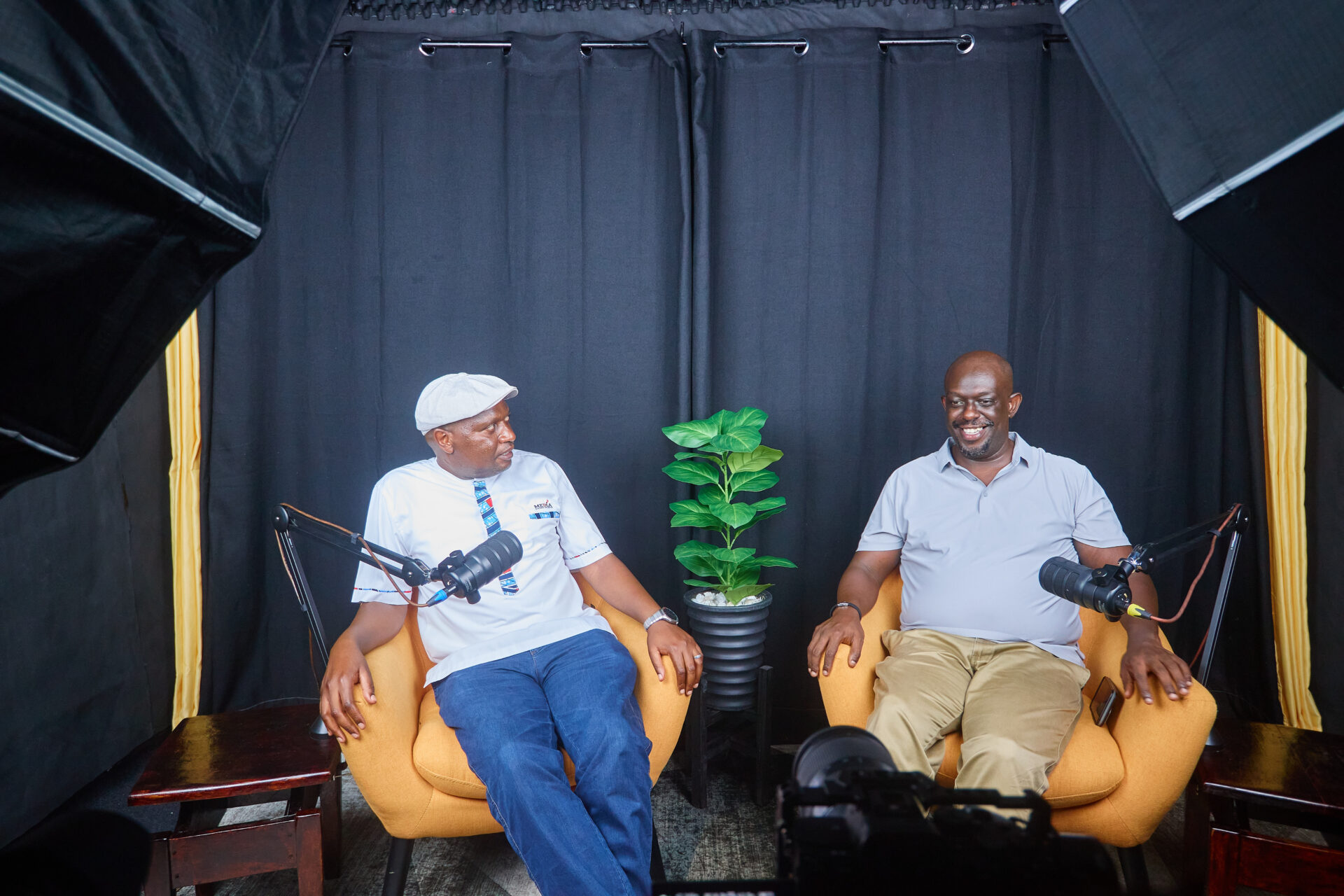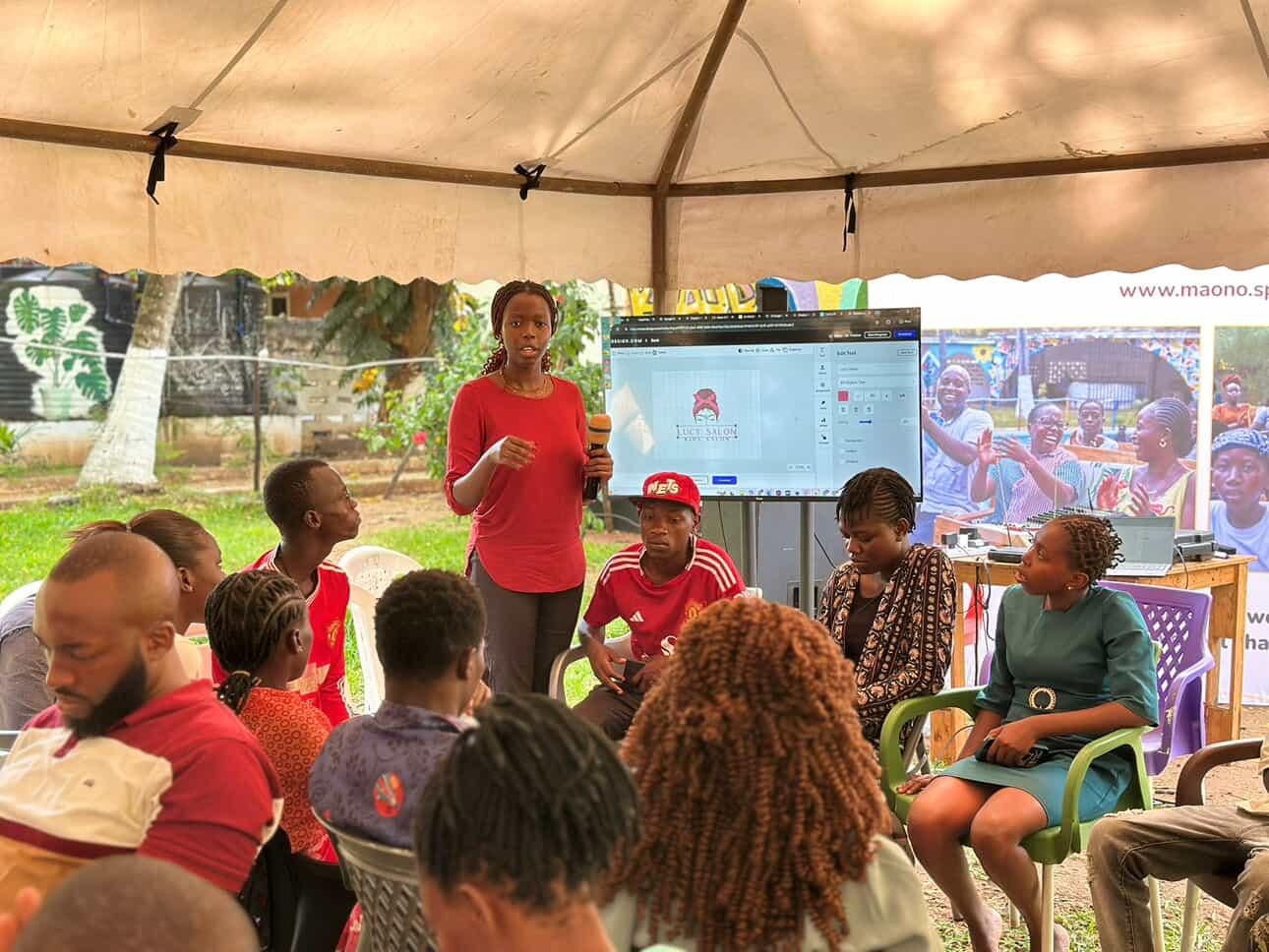There’s a perception that young people are less interested in politics and development than older generations. This might be true for traditional forms of citizen participation like voting, but it doesn’t mean they’re disengaged.
An active citizenry is vital for a healthy democracy. When young people feel their voices are unheard and the issues they care about, like education, youth unemployment, the cost of living, and social justice are not being addressed by their government leaders, they can become discouraged. But when they see a government actively listening to their concerns and working towards a better future they are more likely to become actively involved.
So, are young people active citizens? Absolutely! They may not be participating in traditional ways, but they’re engaged through social media activism, volunteering, and community projects. The key is for our leaders to create spaces where young voices are valued and their ideas can contribute to a thriving society.
Public Participation vs. Active Citizenship: What’s the Difference?
While active citizenship and civic engagement are often used interchangeably, there’s a subtle distinction. Here’s a breakdown:
Public participation focuses on the broader act of taking part in a public event or activity. It encompasses voting, attending community meetings, staying informed on local issues, and generally being aware of your rights and responsibilities. It’s about citizens reacting to proposals or initiatives from governing bodies.
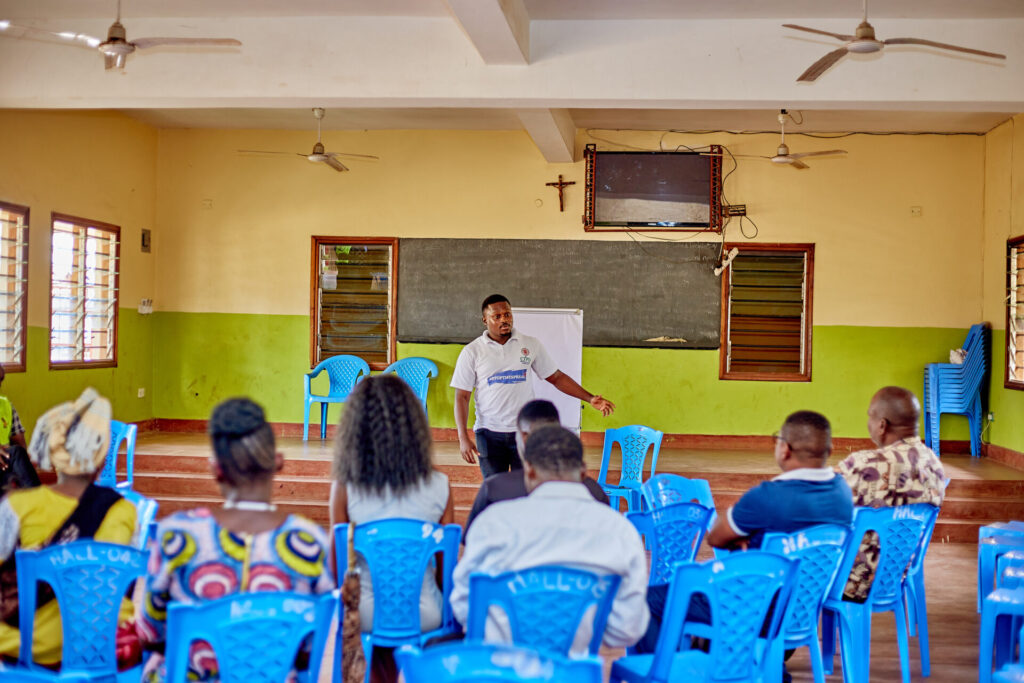
Young people during a public participation meeting in Kilifi County.
Active citizenship on the other hand is a much broader concept and goes beyond reacting. To us, active citizenship is a proactive choice one makes to contribute fully in society by identifying issues and influencing decisions that can change one’s life and that of their community. It means staying informed and being actively involved in what needs to be done within the community, and guiding the government on how you want development done in your area.
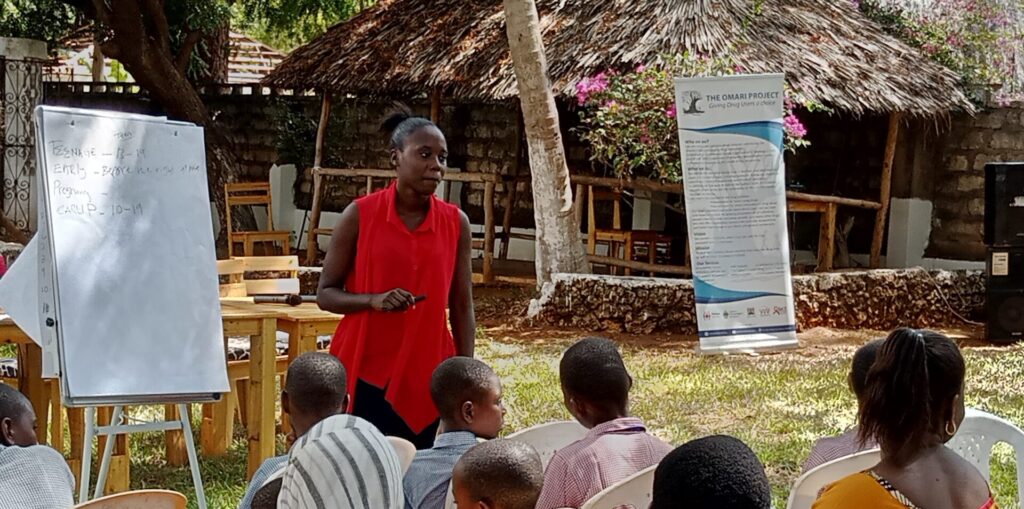
Young Founders encouraging gender equity and equipping the boys to be their sister’s keepers
Active citizens don’t wait to be told what to do. For example, if there’s a budget meeting, they’ll research it beforehand. They will want to know how the money can best serve their community in education or infrastructure. They learn about local issues like agriculture, roads, and markets and with this information at hand they are able to make meaningful contributions and have constructive discussions with the government.
Active citizens are passionate and can inspire others. They are genuinely interested in their community’s well-being and can even motivate others to get involved.
So, active citizenship is a more robust form of public participation. An active citizen takes a more active role in influencing their community and government. It is a daily practice!
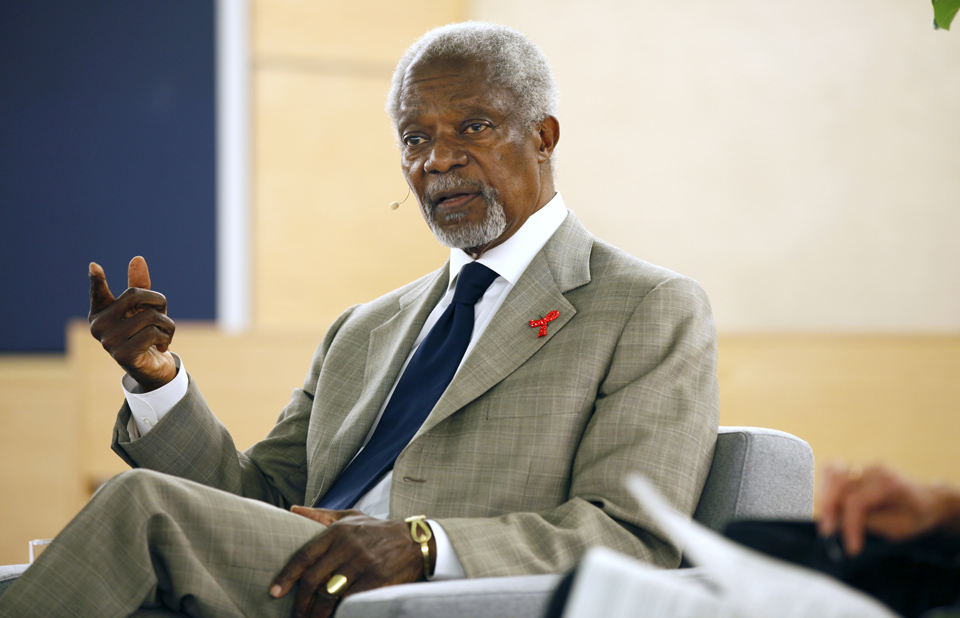
‘No one is born a good citizen; no nation is born a democracy. Rather both are processes that continue to evolve over a lifetime. Young people must be included from birth. A society that cuts off from its youth severs its lifeline.’
Kofi Annan, Former UN Secretary-General
How can we encourage the youth to be Active Citizens?
We are working with change makers at our Maono Space through social action to show more young people how taking action at a local level can have lasting effects in their communities. Maono Space is a dedicated workspace we designed in Malindi for community organisations (CBOs) and local activists. It provides a collaborative environment where young people can work together, build connections, and turn their ideas into real-world action.
This supportive space played a crucial role in Zeinab’s story. With the help of CBOs and other changemakers at Maono Space, she received the resources and support she needed to share her experience. By working together, the different organisations, individuals, and creative minds within Maono Space were the driving force behind the success of Story za Jaba. Their combined voice ultimately gained the attention of the media and convinced the county government to ban the use of Muguka in Kilifi County.
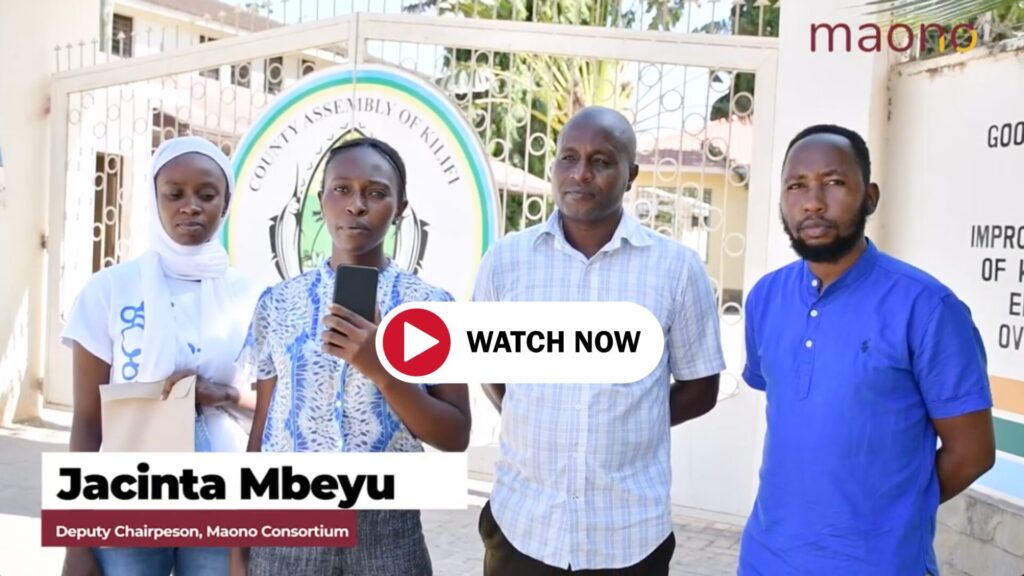
Kilifi Youth on Presenting a Memo on the finance Bill
In our efforts to promote active citizenship we encourage the youth to:
- Find a Cause they are passionate about, volunteer or support local programs in their community.
- Stay up-to-date on local issues by reading news, attending public participation forums, and connecting with local organisations.
- Raise their voice and speak up at public forums, and encourage others to do the same.
- Support local Initiatives by engaging with community-based organisations in tackling issues that affect their communities.
Active citizenship is crucial for societies to thrive because it cultivates a strong partnership between citizens and government. While effective governance relies on a government’s ability to lead, it also requires citizens to actively take part in development and implementation. By researching their communities’ pressing needs and issues, young people can effectively contribute their unique perspectives and influence government policies. This meaningful participation also allows young people to hold the government accountable.
Through continuous interaction and mechanisms that treat individuals and groups as partners, not mere participants, governments can make use of the collective wisdom of the youth, leading to more effective decision-making and a thriving society.
If you are a youth remember, active citizenship is a daily practice, not a one off activity. Every step you take to know more about your community’s needs, every voice you raise, contributes to a stronger, more vibrant future for all.

